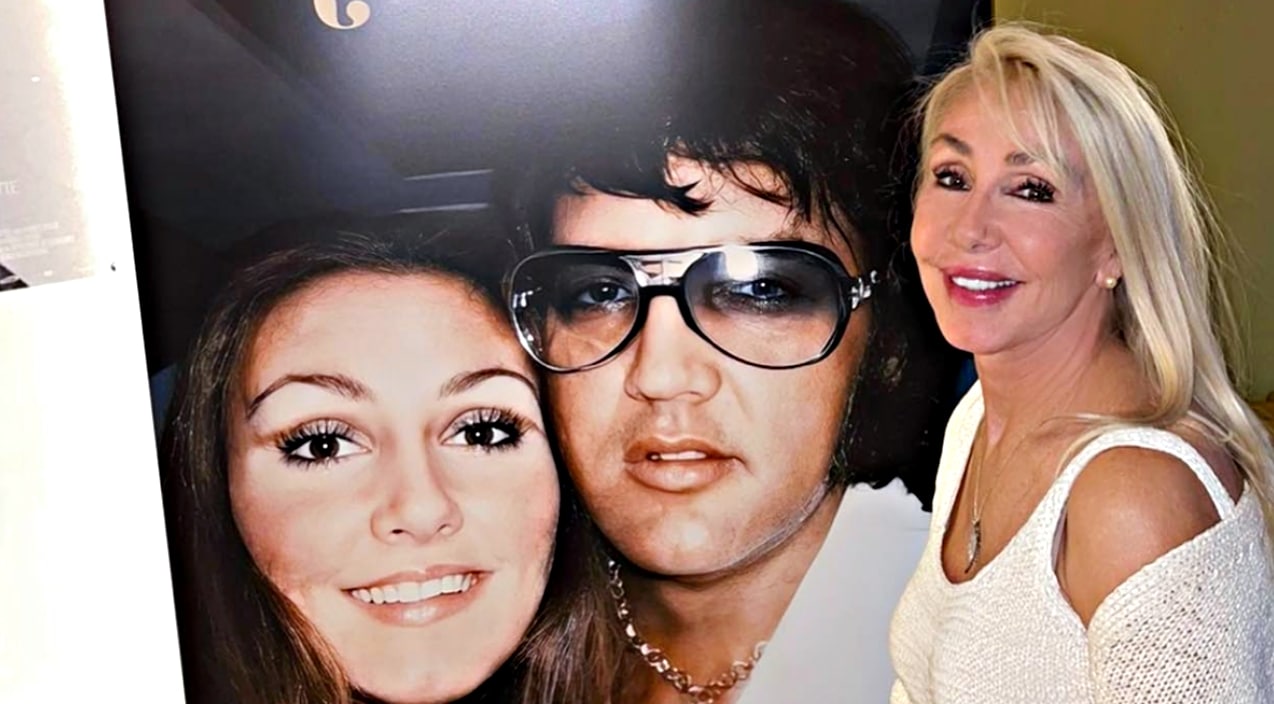“At 75, Linda Thompson Finally Reveals the Elvis Secret She’s Hidden for Decades ”
When Linda Thompson first met Elvis Presley in 1972, she was just 22, a beauty queen with bright eyes and a poised smile.
He was already a legend, larger than life, the most famous man on Earth.
From the moment their paths crossed, she became part of an orbit that glittered with fame but was shadowed by something darker.
For years, Linda has shared glimpses of their life together — the jet-set trips, the tender moments, the volatile nights.
But until now, she has never told the whole story.
In her recent interview, Linda speaks with a gravity that suggests this is not a publicity stunt.
This is a reckoning.
She recalls the first time she saw Elvis struggling, not with the weight of his fame, but with the private battles he kept hidden from his adoring fans.

There was the night he returned home, eyes clouded, voice low, admitting he couldn’t escape the feeling that the world was closing in.
She describes holding him in the dim light of Graceland’s bedroom, hearing his whispered fears that the stage lights couldn’t chase away.
She talks about the isolation — how Elvis’s life, though surrounded by friends, bodyguards, and staff, was often unbearably lonely.
The man who electrified stadiums could, in the next hour, sink into a silence so heavy she felt it pressing on her chest.
Linda says she learned to read his moods like a weather pattern: the sudden brightness when he was planning a show, the gathering clouds when something inside him shifted toward melancholy.
Her most startling admission, however, involves the night she almost left him for good.

It wasn’t about another woman, she insists, but about watching the man she loved spiral further into habits that were consuming him.
She remembers the sound of pills rattling in bottles, the way his hands sometimes shook, the way he would retreat into a private space even when she was sitting right beside him.
On that night, she says, she told him she couldn’t stay and watch him hurt himself anymore.
He looked at her for a long moment, then said something she has never repeated publicly—until now.
His words, she claims, revealed not only his awareness of the danger he was in, but his resignation to it.
There’s also the softer side — the way he would leave little notes for her, folded into the pages of books, or the way he could make her laugh so hard she forgot they were living in a pressure cooker of fame and expectation.
But the sweetness was always laced with the knowledge that Elvis was carrying a burden she could never fully lift from his shoulders.
Perhaps the most poignant part of Linda’s story is her final night with him.
She recalls the sound of his laughter echoing down the hall, the warmth of his kiss on her forehead, the way he said goodnight as if it were just another evening.
It wasn’t.
Within months, Elvis Presley would be gone, leaving her — and the world — to wonder what could have been done differently.
Now, decades later, Linda says she has no regrets about loving him, only regrets about not speaking up sooner.
She insists her silence was never about protecting herself, but about protecting the memory of the man she knew, the one beyond the rhinestones and the headlines.
But with time, she has come to believe that telling the full truth is the best way to honor him.
Her voice doesn’t break as she shares these memories, but there’s a heaviness in her eyes — the kind that comes from carrying a love story that ended too soon.

For fans of Elvis, her words are both a gift and a gut punch.
They paint a portrait of the King not as a flawless icon, but as a human being whose crown weighed heavier than most could imagine.
And perhaps that’s the real revelation here: not that Elvis had secrets, but that the people who loved him the most kept them hidden, believing that silence was a form of loyalty.
Linda Thompson has decided it’s time for the world to hear what she heard, see what she saw, and understand the man behind the myth.
